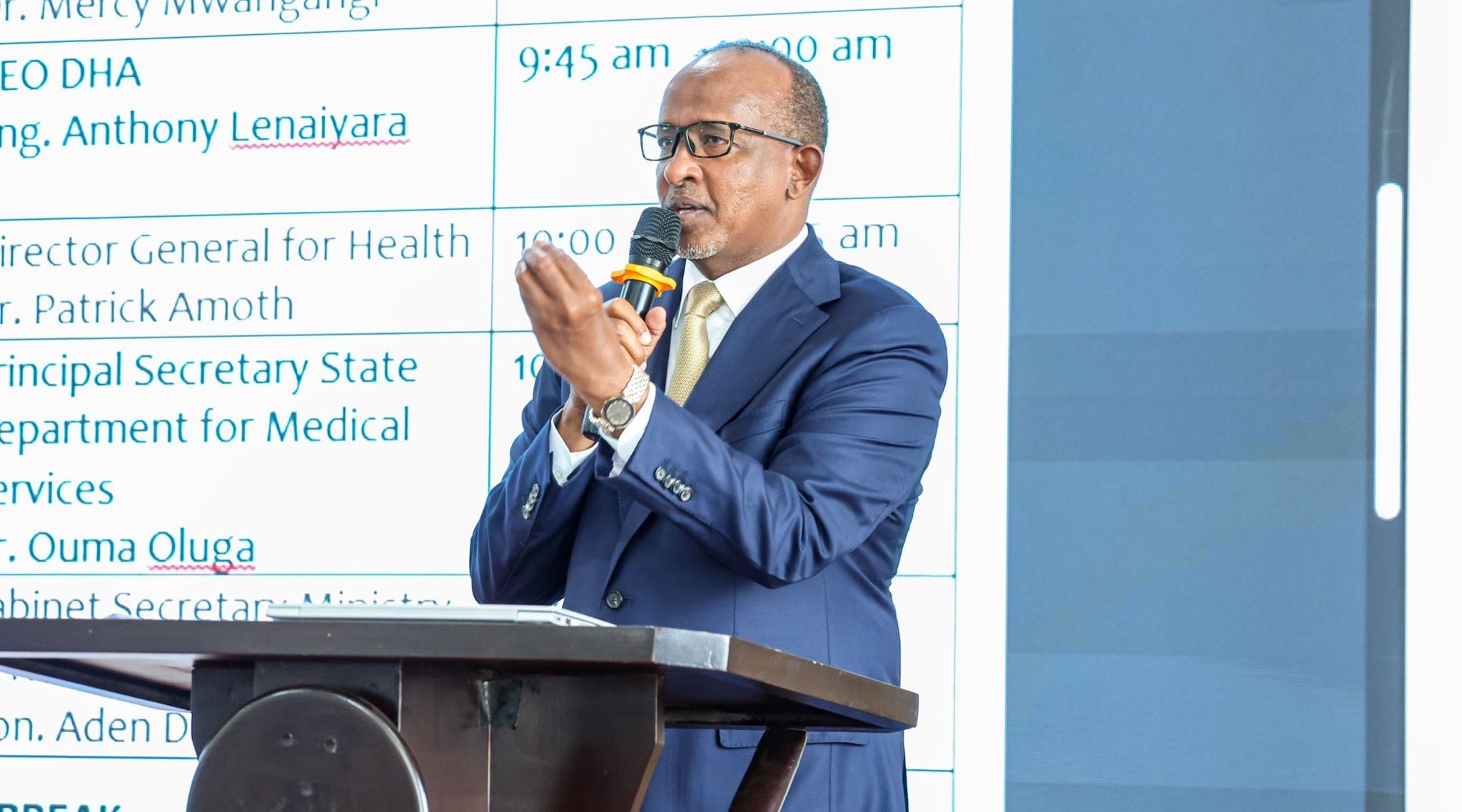The government has started clearing pending debts worth Sh5.3 billion owed to private hospitals by the former National Health Insurance Fund (NHIF), with priority given to smaller and medium-sized facilities.
Health Cabinet Secretary Aden Duale said on Thursday that hospitals owed between Sh1 million and Sh10 million will be the first to receive payments.
Speaking during a high-level consultative meeting with private healthcare providers and senior Social Health Authority (SHA) officials, Duale said claims above Sh10 million will be verified by an independent committee before payments are made to protect public funds.
“The government will commence repayment of the pending NHIF bills amounting to Sh5.3 billion, prioritising hospitals owed between Sh1–10 million. To safeguard public resources, an independent committee will verify all claims above Sh10 million before settlement,” Duale said.
The meeting focused on strategies to improve service delivery under the Taifa Care model, which is central to expanding Kenya’s Social Health Insurance system.
Duale said private providers are key partners in ensuring continuity of healthcare services during this transition.
President William Ruto had announced in March that claims below Sh10 million would be cleared promptly, while larger claims would undergo review by a verification committee. The move is expected to unlock payments for 91 per cent of facilities previously contracted by NHIF.
Duale formed the verification committee, led by James Masiro, through a gazette notice on March 28. The team was inaugurated on April 8 and officially launched nine days later, with an expectation to complete its work within 30 days.
However, the panel had not started its verification by the time of Thursday’s meeting, raising concerns over possible delays in clearing larger claims. The Kenya Association of Private Hospitals (KAPH) had also highlighted the need for guidance on which smaller claims would be settled immediately.
By November 22, 2024, when NHIF was phased out, hospitals had raised claims totaling Sh33 billion accumulated between July 2022 and September 2024. President Ruto confirmed this figure in March, noting that the debt had hampered hospitals’ ability to provide services under SHA.
“A whopping debt of Sh33 billion had built up by the time the NHIF was wound up, affecting the ability of health facilities to provide services under the Social Health Authority (SHA),” the President said.
Earlier, faith-based hospitals had issued a 14-day ultimatum threatening to halt services unless arrears were cleared. The strike threat was later suspended after a meeting with President Ruto.
Other agreements from Thursday’s session included appointing SHA relationship managers for contracted hospitals, setting up a joint SHA–DHA service desk at SHA headquarters and Huduma Centres, and introducing real-time communication channels on policy updates.
Duale stressed that private hospitals and faith-based organisations will be fully integrated into the County-to-County rollout of Taifa Care. He said this collaboration would “create a platform for dialogue and collaboration to accelerate access to effective, affordable healthcare nationwide.”
During a panel discussion, the CS highlighted ongoing reforms aimed at fast-tracking Kenya’s Universal Health Coverage agenda and stressed that timely payments are essential for sustaining the programme.
“Timely payments by SHA will be critical for the long-term sustainability of this programme,” he said.
The consultative session included representatives from 103 healthcare facilities across seven counties, including Kajiado, Embu, Machakos, Nairobi, Kiambu, Nyeri, and Kirinyaga.
